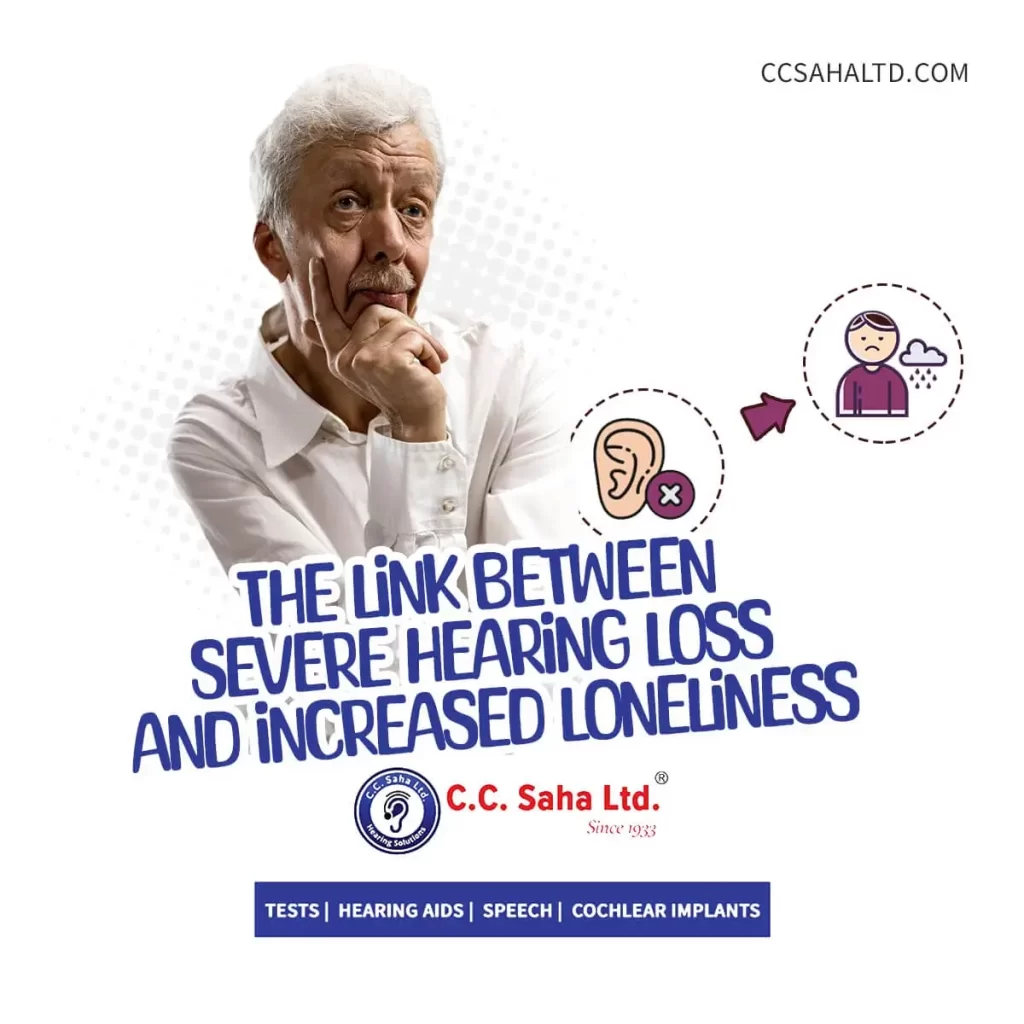Imagine a world where the sounds you once took for granted—the laughter of loved ones, the rustling of leaves, the melody of your favorite song—begin to fade away. For many, this is the harsh reality of severe hearing loss. As the ability to hear diminishes, so too does the ease of communication, creating an invisible barrier between individuals and the world around them. This barrier can lead to profound feelings of isolation and increased loneliness.
As in the case of Bimal Kar, a man in his late sixties who has recently experienced significant hearing loss. Once an active participant in family gatherings, Mr. Kar struggled to keep up with conversations. His grandchildren’s excited chatter, once a source of immense joy, now sounded like distant murmurs. At family get-togethers, he watched as his loved ones engaged in animated discussions, feeling increasingly disconnected and out of place. The simple act of asking someone to repeat themselves felt burdensome, and over time, Mr. Kar had retreated into a world of silence, his presence became more and more of a shadow.
Mr. Kar’s experience is not unique. For many individuals facing severe hearing loss, the frustration of not being able to communicate effectively with even their closest family members can lead to devastating loneliness. The laughter around the dining table, the shared stories, and the comforting words of loved ones become elusive, making them feel isolated in the very place where they should feel most at home. This deep sense of disconnection underscores the critical link between severe hearing loss and increased loneliness, highlighting the urgent need for understanding, empathy, and support.
They worry about being seen as weak or dependent, which can erode their sense of self-worth.
Often, there is a lack of awareness, understanding, and empathy about hearing loss. Family members may not fully grasp the challenges and impact it brings, leading to unintentional insensitivity or dismissal. This lack of empathy can discourage open discussions.
Hearing loss leads to communication barriers. This communication barrier makes the issue even more difficult to address.
Despite the challenges, discussing hearing loss with family is essential. It’s a daunting task, but starting this conversation can lead to better understanding and support. If needed, seek help from the person you trust most.
How about a short story?









